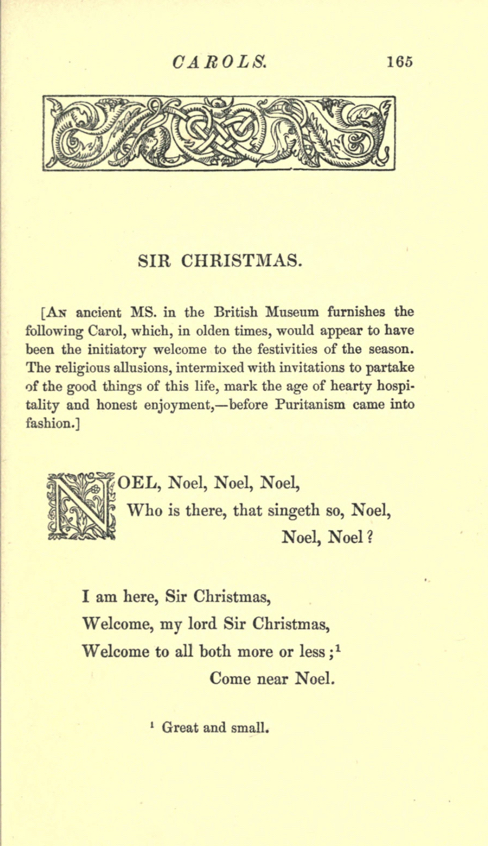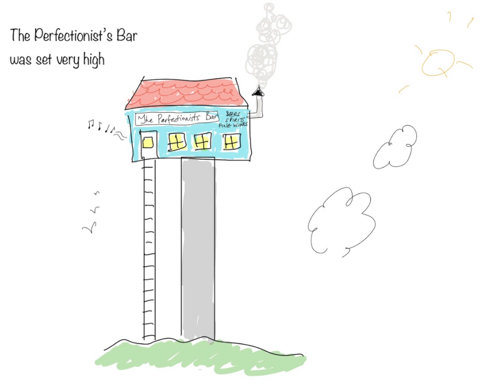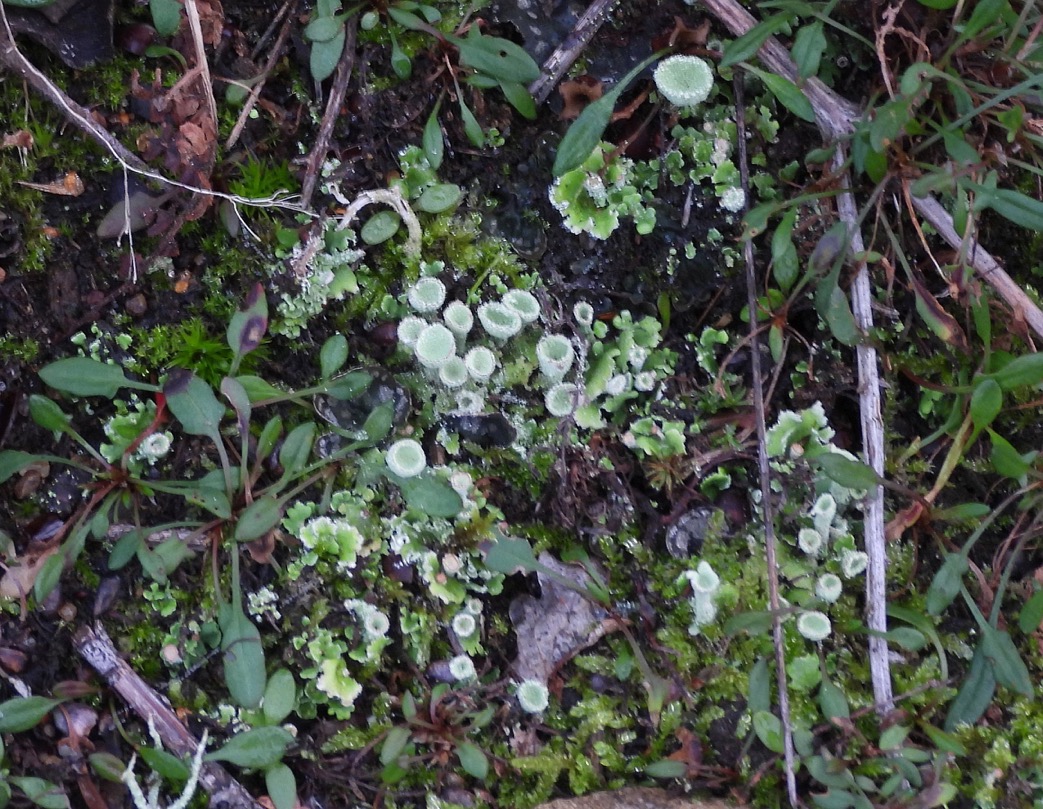I sent my friend a joke about failed deliveries. But he didn’t get it.
Personal Blogs
Watched a video about low-carb dieting. So inspirational. It just took my bread away.
In Icelandic folklore, instead of Santa there are 13 Yule Lads, who come one after another on each of the 13 nights leading up to Christmas, and then leave again in the same order as they came. They are fond of playing tricks,
but also leave presents for children, in shoes rather than stockings. Their names in English are
Sheep-Cote Clod
Gully Gawk
Stubby
Spoon-Licker
Pot-Scraper
Bowl-Licker
Door-Slammer
Skyr-Gobbler
Sausage-Swiper
Window-Peeper
Doorway-Sniffer
Meat-Hook
Candle-Stealer
A pun
Is fun.
Today the word wassail is rare and survives only in Christmassy traditions; it can mean mulled wine, or a booze up, or singing carols house to house. But originally it was not specially related to Christmas but just a drinking formula, e.g.
Me: Ves Heill
You: Drink Heill
Which means something like
Me: To Your Health
You: Drink To Health
Drinkhail has now sadly faded from the language, but wassail survives, a sort of verbal fly trapped in Christmas amber. Interestingly the drinking formula aspect is quite late. The expression Ves Heill existed before the Norman Conquest but there are no sources connecting it to the drinking formula I have described; it is just used in the sense of ‘be well’ or ‘farewell’. And the ‘hail’ form indicates Danish influence (in Old English it would have hal rather than heill). An interesting theory is that the drinking motif evolved among the Danish speakers in England e.g. in the reign of Cnut and then memed more widely. It’s lost its potency now though.
Today I was reading a book about Christmas traditions (Vintage Christmas Traditions, by Linda Davis) and found this early appearance of Father Christmas or something like him. The earlest know record of the carol is from the 15c (see here) and seems to be from the Ritson manuscript, a 15c choirbook in the British Museum.
The version below comes from A garland of Christmas carols, ancient and modern. Including some never before given in any collection (J.C. Hotten, 1861) which I found on the Internet Archive.

How would you make a joke about a small fruit basket?
.
.
Punnet.
I am not religious, but still fond of tradition, and religion-friendly, so I did (apprehensively) venture to the local church for a service of readings and music (congregation not allowed to sing; nor, I was amused to read, to hum).
The music was the organ and the choir, who are permitted to sing and hum too, I guess. Last year the church was packed; this year only 24 of us. Everything was very safety-first and well organised and I was glad I went. I didn't pray but I did think about the lives that have gone before, and about those that must once have sat in the same pew I occupied, on my own because of social distancing.
Why did Tim feel full of beans?
Because he had eaten too many. Boom boom!
The local choir was going to perform Carmina Burana but they’ve decided to Carl it Orff.
After my Mother’s sister had her DNA changed one day by aliens, she never spoke another word. We called her the mute aunt.
Here's something I wrote a few years back and had forgotten about. It's an experiment you can try anywhere, when you have a few spare moments.
Equipment
Your imagination.
A stopwatch (or phone app or you can just count seconds: one hundred, one hundred-and-one, one hundred-and-two, one hundred-and-three… or get someone else to do it for you).
Background
There is no background, you must imagine it.
Preparation
Have your stopwatch (or phone app, or
mental counter or helper) handy to start and stop without needing to
look at it (you’ll see why shortly). Then:
READ THE INSTRUCTIONS BELOW before starting the experiment.
Because for most of the time your eyes need to be closed tight shut.
I had to rehearse it myself. It’s not that hard but a dry run helps with starting and stopping the timer without breaking concentration.
Instructions
Shut your eyes and think of an elephant.
Your elephant is facing directly toward you. Picture its eyes, tusks, greyness, sturdy legs, big flapping ears.
Are you ready? Do you hold a solid four-ton elephant in your imagination?
Rehearsal
Now you must rotate your elephant.
Your mind alone must do the heavy lifting (or in this case heavy rotating). Think of yourself as using the power of thought to act on the imaginary elephant, which you have to heft round so it is now facing away from you, so you see its bum and tail.
1. Ready steady go! Mentally rotate elephant.
2. When elephant in correct orientation stop timer.
3. Open eyes and write down time.
Experiment
Now that you have conducted the rehearsal:
1. Repeat the same procedure, that is record how long you take to turn the elephant so it goes from facing you to facing away from you.
2. Do it again but with this variation: now you have to mentally rotate the elephant full circle so that at the end it looks toward you again, and note the time as before.
Results
If you are like me you find that rotating the imaginary elephant takes time! Something is happening inside your head that is like physically manipulating an object, even though there is no real object. And a full rotation of my elephant takes about – guess what – twice as long as a half-rotation. It varies but usually I take about 6 s for a half rotation, 12 for a whole turn.
Conclusion
This is not of course a rigorous scientific experiment. But it does suggest that when we move mental objects we base the imaginary movement on experience of shifting real things. There is a considerable body of research on this, involving much better experimental designs that leaves little room for doubt. Shepard and Metzler were the pioneers (scroll down to find their article).
And did you rotate your elephant to the left or right? I didn’t say which to do. Are you are left or right handed? I’d be interested if you could post a comment to tell me the two things, so we can see if there is a connection.
And does the size of an imaginary animal matter? What if you try to mentally rotate a blue whale, about 50 times bigger by weight than an elephant? Or a human, about 50 times smaller?

"Quick, try to grab the toy bear's attention!", said Tom distractedly.
I’ve just finished making a thriller about a symphony orchestra.There’s quite a few violent scenes, but we didn’t harmony musicians in the making of it.
Inbox, "Apple turnover"
Thinking delicious dessert, but no
Just business news.
This is by Lord Byron and very evocative. It may be his best-known poem today. Manfred and Don Juan made a huge stir 200 years ago. I've not read Manfred but I have read Don Juan, and probably will again. But it is not a moving poem; it is funny and racy and cleverly-versified; and the references were topical at the the time it was written. I like it, but I don't think it is very deep.
Lord Byron was an Hellenophile and famously went out to support the fight for Greek independence. He died at Missolonghi in 1824, during the military campaign, it seems of malaria, and becames a Greek national hero. When I first visited Greece in the 1970s, small bars and restaurants often had a picture of Lord Byron on the wall, 150 years after his death.

It only takes a sprinkle.
And then your Spring will glow and shine,
And coruscate, and twinkle.
æsc
æspe
aler
bece
beorc
boxtreow
cirse
elm
eow
fyrh
hæsl
hagaþorn
holen
ifig
mapulder
peru
pintreow
sealh
I'm determined to beat procrastination. Starting tomorrow.
I sent my daughter this
What do cats do when they change their genes?
Mew-tate!
Her friend saw my pun and raised me
You might think this is funny, but cat puns really freak meowt.
I'm a big doodler. Last night I drew some dots in a rough octagon and started drawing lines joining pairs of dots.
Then I wondered how many lines I could draw before I formed a triangle. I don't mean a triangle formed by three lines (although that's an interesting question too), but one with dots at its three corners.
With any problem where you have a series it's always a good idea to look at the small cases. Sometimes it can be misleading though. Still I drew some little sketches

It's easy to be sure the count is right for n = 2, 3 and 4, but even by 5 it gets less obvious. Is there a general formula? I wondered if this was a novel puzzle (and hoped it was); sadly it turns out no, it was investigated by Mantel in 1907. There are various proofs of the result Mantel found, but they are more or less technical and not intuitive. So I wondered if I could present the basic idea of one proof in a more accessible way.

With 5 dots consider a pair x and y that are joined by a line. That leaves 3 others and if we think about any one of these, let's call it z, we see x and y cannot both be joined to z. Otherwise we would have a triangle! So the maximum of lines from either x and y to the other dots is 3. Finally focusing on the 3 other dots, the maxiumum number of lines possible amongst these is 2, otherwise we would have a triangle.
Adding this all up as shown the greatest possible number of lines is 1 + 3 + 2 = 6.
Let's see if we can generalise this idea. Suppose we have n dots and the maximum number of lines that can be drawn without forming a triangle is f(n).

Following the same argument as before, if we are to avoid a triangle, we can have one line joining x to y, a maximum of n - 2 lines joining either x or y to one of the remaining n - 2 dots, and f(n - 2) lines amongst tos n - 2 others. So
f(n) = 1 + n - 2 + f(n - 2) = n - 1 + f(n - 2)
So we can immediate calculate further values
f(6) = 6 - 1 + f(6 - 2) = 5 + f(4) = 5 + 4 = 9
f(7) = 7 - 1 + f(7 - 2) = 6 + f(5) = 6 + 6 = 12
f(8) = 8 - 1 + f(8 - 2) = 7 + f(6) = 7 + 9 = 16
So now we have (for completeness we include n = 1 with 0 lines)
0, 1, 2, 4, 6, 9, 12, 16
Can you spot a pattern?
This other-wordly organism is a lichen, "Pixie Cups", photographed by my brother Simon at Sandy Lodge in Bedfordshire.

Thius seems to be related to the so-called "Reindeer moss", also a lichen of the genus Cladonia, which contains 276 species. Some are quite startling in appearance, see here.
This blog might contain posts that are only visible to logged-in users, or where only logged-in users can comment. If you have an account on the system, please log in for full access.
